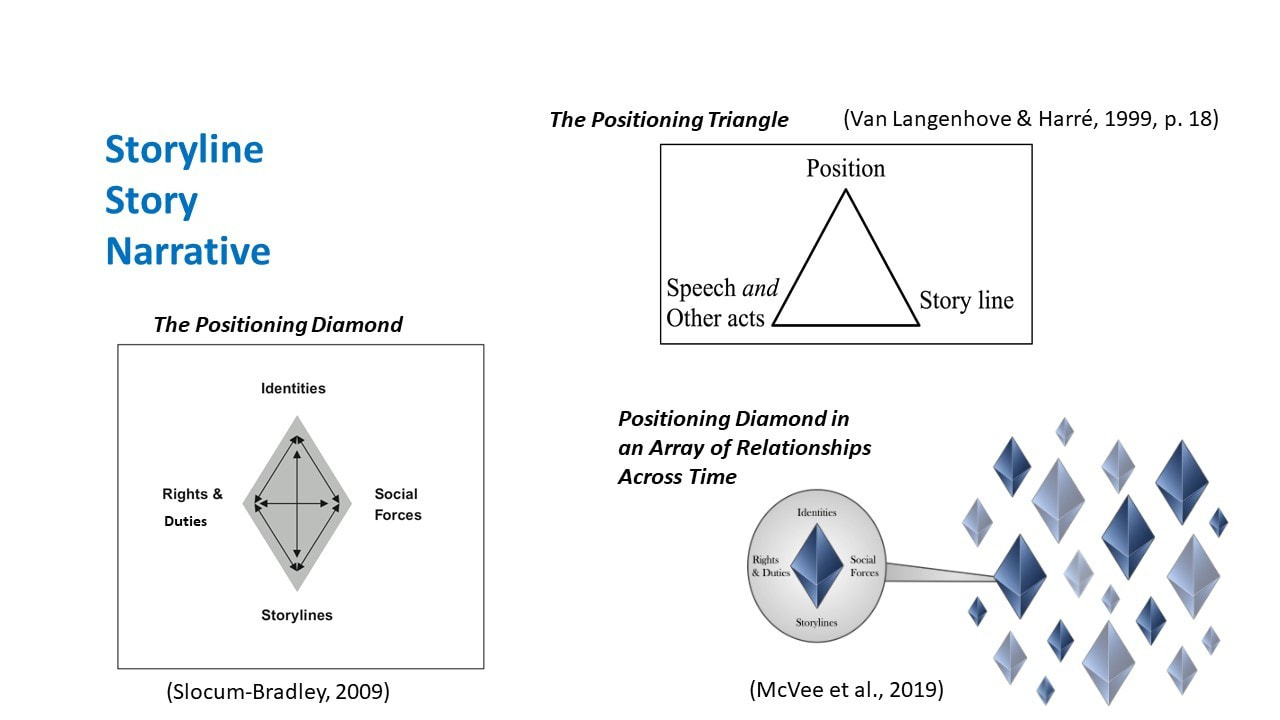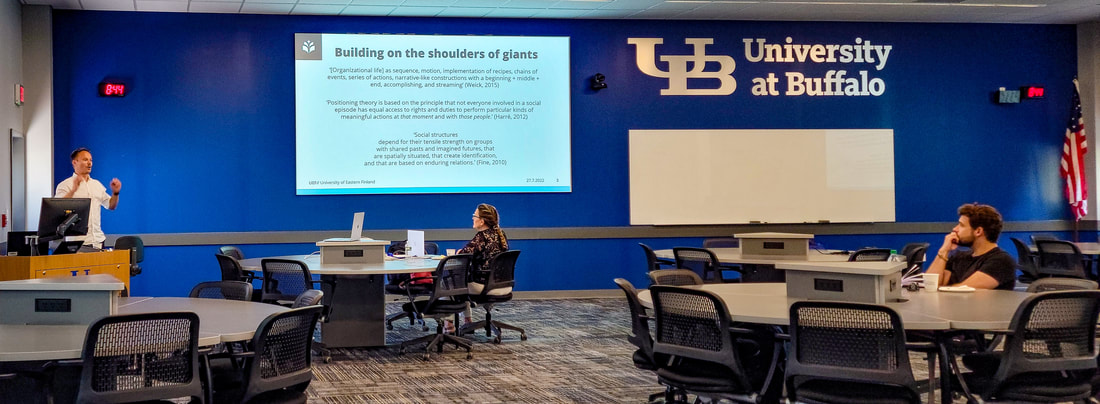
Above is a slide from Dr. McVee's presentation.
Positioning Theory developed as a method of analysis aimed at revealing the storylines and implicit (sometimes explicit) ascriptions and resistances to ascriptions of rights and duties to perform actions expressing social acts appropriate to the situations recognized by participants in a strip of life" (Harre, 2012).
Dr. Mary McVee, from the State University of New York University at Buffalo Graduate School of Education, organized a conference this week to learn and share information about positioning theory. Although the other attendees were essentially experts on, or at least users of, positioning theory, I attended as a complete novice. I found every presentation to be educative and enlightening. Now I have the task or reading the literature to help understand how I could apply the theory (or its variants) to my research and to my teaching.
Below are references to provide more detail. (I'll expand on this article in the near future.)
Harré, R. (2012). Positioning theory: Moral dimensions of social-cultural psychology.
McVee, M. B., Silvestri, K. N., Barrett, N., & Haq, K. S. (2019). Positioning Theory. In D. E. Alvermann, N. J. Unrau, M. Sailors, & R. Ruddell (Eds.), Theoretical models and processes of literacy (7th ed., pp. 381-400). New York: Routledge.
Van Langenhove, L., & Harré, R. (1999). Positioning as the production and use of stereotypes. In R. Harré & L. Van Langenhove (Eds.), Positioning theory: Moral contexts of intentional action (pp. 127-177). Malden, MA: Blackwell.
Slocum-Bradley, N. (2009). The positioning diamond: A trans-disciplinary framework for discourse analysis. Journal for the Theory of Social Behaviour, 40(1), 79-107.
#UBGraduateSchoolOfEducation #UBGSE #UniversityAtBuffalo #GSE #PositioningTheory

 RSS Feed
RSS Feed